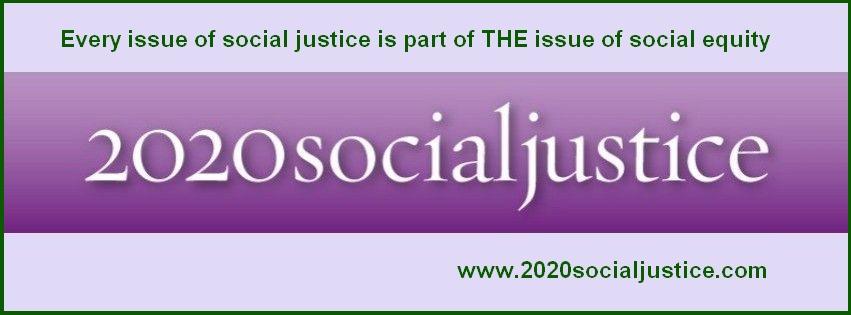I first wrote about the tension between feminism and science some years ago, after a conference dinner at which the person next to me asked what sort of psychologist I was – probably expecting to hear about my ‘specialty’. My response, no doubt naive, was to describe myself as a feminist psychologist.
The effect could not have been more dramatic had I been trying: one person left the table; another turned away; another puffed up and demanded to know if that meant I wanted to exclude men; and one responded to the former by explaining that being a feminist meant being anti-science.
I felt I should at least attempt to address that.
Monopolisation of knowledge
Feminism, in my understanding, is not inherently anti-science, but does reject the monopoly on knowledge that science can assume. Other forms of knowledge – lived experience and introspection, for example – have low credibility within a scientific worldview.
If the scientific method fails to provide answers to questions (such as how most effectively to intervene in heroin addiction) the failure is seen to lie in application of the method rather than in its inherent limits when trying to understand complex human behavior chains.
Obsession with measurement
Limitations on the way knowledge is constructed also mean that some concepts fall outside the know-able. I was taught, pretty much, that if it can’t be measured, it doesn’t exist, or at least should be ignored.
Ignor-ance, and obsession with measurement are not, however, adequate when it comes to key feminist concepts such as power relations, oppression, and exploitation, which do not yield readily to scientific measurement, but which nonetheless exist.
Mastery and control
Additionally, feminism is sceptical of values that can underlie scientific work.
The language is indicative: causal connections are discovered; variables are controlled; the environment is mastered; treatments are delivered to naive subjects in randomized double-blind experiments.
The framework of control, questionable as research method, becomes anathema when extrapolated to social relations.
Ideology masquerading as science
A potential effect of unexamined values is that ideology can masquerade as science. Over the decades, psychology has, for example, invested much effort into research on concepts such as maternal deprivation, self-defeating personality disorder, and late luteal phase dysphoric disorder, all of which pathologise women and decontextualise their lived experience in male-dominated societies.
Indeed, from a feminist perspective, much of psychology supports and perpetuates the status quo of structural power relations, but pays no heed, and evades accountability for damage caused by claiming to be objective, value-neutral, and apolitical.
Pseudoscience
Feminism, as I understand it, also rejects pseudo-science, so-what science, and science-as-an-end-in-itself, examples of which include most research on sex and gender ‘differences’, experimental research with questionable application to the everyday world, and the kind of counselling research that relates eyeblinks to empathy.
I think the belief is that this sort of busywork establishes scientific credentials, but there are no feminist prizes for its products.
Conclusion
Having said all that, I realise why I cringe when the scientist-practitioner model is uncritically upheld as the ideal for psychology. It is not enough and needs, at least, to be linked with an analysis of the social and political context in which it is applied.
Additional requirements for addressing the tension between feminism and science within psychology include recognising the limits of science, exploring alternative ways of understanding complex concepts, examining value frameworks, and resisting the window-dressing of pseudoscience.
I believe it is (probably) theoretically possible to address these issues and, when appropriate, engage in scientific psychological work that is not anti-feminist.
Written By Joan Beckwith, PhD
Is feminism anti-science? was originally published @ 2020 Social Justice and has been syndicated with permission.
Our authors want to hear from you! Click to leave a comment
Related Posts







In line with your essay, perhaps a problem with “science” is when scientific practice blindly adheres to a methodology regardless of unexamined assumptions and conceptual confusions. I play with these ideas in an essay: “On Saying No: Evidence Based Practice and the Hijacking of the Empirical”, Advances in Descriptive Psychology, 2010. If interested it can be downloaded here: http://papers.ssrn.com/sol3/papers.cfm?abstract_id=2393692
Wynn I also believe there is a general ignorance to the role and nature of language including it’s limits to describe the psychical world. Somehow people begin to believe that because we use numbers we are not interpreting those numbers via the intellectual language capacity. We fall into this blanket assumption that there is a world of ideals in which all things are static and knowable.
Thanks, Wynn, for this link to your essay. I particularly appreciated the references to Wittgenstein, a philosopher whose work has long fascinated me, the distinction drawn between “experimental methods and conceptual confusion”, and the critique of “grand theories”. I am not aware if Descriptive Psychology has a toehold in Australia, but perhaps you would be?
And, just picking up Matthew’s comment,I would be fascinated to hear more on the subject of the limits of language, and what the options are for understanding the psychical world once that is acknowledged…Joan Beckwith.
All concepts and words in language rely on other concepts and words to make sense. No structure in language can exist independently. Because we separate parts of speech it is temping to treat an object as if it has a self-nature, but we are ALWAYS using language in a referential manner. There is no way to use language to describe an eternal phenomena without begging the question of or creating an infinite regress. Since we use language in every aspect of science, including numbers ( just another form of quantification of phenomenal data, in exactly the same way language is, but perhaps more precise) we cannot make the claim that our discoveries are eternal scientific discoveries, but this is precisely how they are interpreted by people in everyday life, including scientists. It is assumed that the discoveries are discoveries of the truth of things and not just another aspect of the phenomenal world.
We think we are conquering the objective world when in fact we do not posses the capability to do this presently. We are not outside the system and as a result the conclusions are altered by our presence in this system, just by using language they are altered.
To make a long story short, using language and science to describe the world is useful. We do not need science to lead to some ultimate truth for it to be useful. We come to understand contextual aspects of this great mystery and it allows us to organize it and make some sense of it. It is when we start attributing meaning and power beyond the scope of our abilities that we get off the tracks, we start to capture the world and place a sort of ownership on it that is just a fantasy. We fail to remind ourselves that things are changing and we must always have an open mind. Thus science becomes closed minded which is a sort of funny.
Joan, send me an email and I’ll forward some basic Descriptive Psychology pubs. I suspect that very few people in Australia (or anywhere else, for that matter) are familiar with DP. But it is a useful fresh start. In the meantime this might help: http://freedomliberationreaction.blogspot.com/2014/03/a-short-course-in-descriptive-psychology.html
Best, Wynn
wynn_schwartz@hms.harvard.edu
Unexamined assumptions: ‘key feminist concepts such as power relations, oppression, and exploitation, which do not yield readily to scientific measurement, but which nonetheless exist.’
Fair enough, Nick. Could put the full stop after “measurement” or change the last bit to “…but which are nonetheless experienced by many and invite scholarly attention.”
Working through the issues thrown up in this brief and cursory essay would be the work of a book rather than a few hundred words, given the many constructions of both science and feminism, neither of which has undisputed meaning…Joan Beckwith.
What comes to mind here for me, Matthew, is the (related?) recognition of the limits of ‘objectivity’ because we can never get outside our own heads and ‘subjectivity’. Hence, also, the limits of ’empathy’ even though it can take us some of the way towards bridging the distance to the essentially unknowable ‘other’ – whether person or thing…Joan Beckwith.
That is sort of the thing, we can get outside rational thought through meditation, get some perspective on conscious thought and the processes so to speak by experiencing the ground of consciousness before thought arises. I think some people think of empathy and compassion as something a person is making up to meet their needs, but technically empathy and compassion are the recognition of interdependence- understanding that although we can conceptualize being separate there is no way to really separate phenomena completely. We could just as easy conceptualize empathy as something we are tapping into or rediscovering, in which case we do not need to know it, but simply experience it.
Beautiful. Thank you, Matthew. I have not ever practiced meditation in any formal sense, but have certainly ‘experienced’ empathy, and what you say also connects back to the point in my paper about attempts to ‘measure’ empathy and, when I think about it, ‘teach’ it as a ‘skill’. Somehow the beauty of the experience is diminished in the reductionist process…Joan Beckwith.
That is a great way to put it!
Wonderful and well said! I can identify with the situation you mention in the beginning of your article. My focus in graduate school was the application of feminist therapy on trauma. When ever I bring this up in conversation I get lots of questions about my research on trauma, but never anything on feminist therapy and theory. It is almost as if people don’t hear the first part of the sentence, but it has happened too many times to be coincidence. I find this to be unfortunate because I believe that a feminist approach is uniquely suited for this type of work since traumatic experiences, for oppressed groups, have happened in the context of an identity that already has historical and inter generational trauma weaved through their experience.
Thanks for your comments, Laura, and reassuring as well as dismaying to know the experience is shared. Totally agree about the relevance of feminist theory to trauma work, just considering how often trauma results from abuses of power. The dismissive, sometimes aggressive, and occasionally plain vile (particularly on the internet) responses to owning allegiance to feminism and the value of feminist theory is also fascinating in itself. If, for example, you referred to deconstructive theory, or critical theory the reaction may be glazed-eyed disinterest but hardly have the emotional punch behind it, and yet sometimes these theories and practices owe a lot to feminist theory, oftentimes unacknowledged…Joan Beckwith.